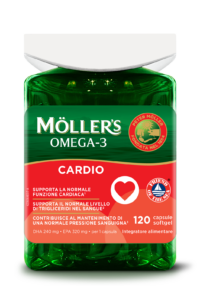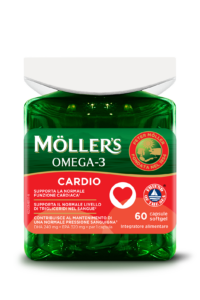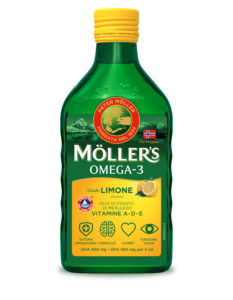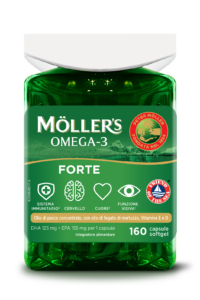Il sistema immunitario è una parte essenziale di tutti gli organismi, ma perché alcune persone si ammalano più spesso di altre? Come funziona il sistema immunitario e come mantenerlo in equilibrio?
Home » Rimani in salute con un sistema immunitario forte

Cos’è un sistema immunitario?
La funzione principale del sistema immunitario è attaccare i microrganismi patogeni e proteggere il corpo dalle malattie. “Microrganismo” è un nome collettivo per batteri, virus e funghi.
Il motivo per cui abbiamo un sistema immunitario è proteggerci da malattie e malattie. Di solito, ciò avviene senza danneggiare il corpo, ma quando qualcuno ha una malattia autoimmune, il sistema immunitario può attaccare le cellule sane del corpo e distruggerle. Ciò potrebbe accadere perché le cellule cambiano carattere mentre il sistema immunitario attacca tutto ciò che percepisce come patogeno.
Il tuo sistema immunitario ha due funzioni principali:
- Per proteggere il tuo corpo dai microrganismi patogeni
- Per rimuovere cellule e tessuti danneggiati e morti
La tua pelle fa parte del tuo sistema immunitario esterno. Mantiene lontani i corpi estranei essendo impermeabile e impermeabile. Ma se hai graffi e ferite, i batteri potrebbero penetrare nella tua pelle.
Con l’aiuto delle mucose, contenenti anticorpi e ciglia nella gola, nei polmoni e nel naso, tossiamo corpi estranei. L’acido dello stomaco riduce il numero di microrganismi che ingeriamo attraverso cibi e bevande, e i fluidi corporei come lacrime, olio delle ghiandole sebacee e saliva contengono enzimi antibatterici che possono ridurre il rischio di infezioni. Questi fanno tutti parte del tuo sistema immunitario esterno.
Come avere un sistema immunitario buono e intelligente
Oltre ad avere un buon sistema immunitario, è necessario avere anche un cosiddetto sistema immunitario intelligente. Un sistema immunitario intelligente trova l’equilibrio necessario per evitare di attaccare il corpo quando le cellule cambiano carattere, note come malattie autoimmuni.
La maggior parte delle persone ha un sistema immunitario equilibrato e buono, ma di tanto in tanto è possibile attraversare un periodo in cui il sistema immunitario è indebolito. Le ragioni potrebbero essere diverse, come un periodo di privazione del sonno o stress, ed entrambi possono influenzare negativamente il sistema immunitario.
Per evitare di ammalarsi, a causa di un sistema immunitario indebolito, ci sono alcuni accorgimenti che potresti adottare. Assicurati di dormire abbastanza. Vai a letto un po’ prima se sai di avere la mattina presto o di avere problemi a dormire. Se sei sotto stress, devi prenderti del tempo per considerare cosa ti sta stressando. C’è qualcosa che puoi fare per evitare di provare stress? Chiedi aiuto agli altri, se possibile.
Sia tu che il tuo sistema immunitario trarrete beneficio dall’esercizio quotidiano e dall’aria fresca, soprattutto durante i periodi di stress. Che tu vada in palestra o faccia una passeggiata all’aria aperta, hai del tempo per te stesso e fai un po’ di esercizio.
Anche una buona (ma non troppo) igiene è un fattore chiave. Molti batteri in realtà fanno bene. Ironicamente, ammalarsi potrebbe effettivamente aiutarti a rimanere in salute in futuro. Anche il sistema immunitario trae beneficio da qualche raffreddore, permettendogli di essere meglio preparato la prossima volta che la malattia colpisce.
Cosa puoi mangiare per migliorare il tuo sistema immunitario?
Ci sono molti alimenti e integratori che puoi assumere per rafforzare o mantenere il tuo sistema immunitario. Concentrati sui prodotti che contengono molti antiossidanti e vitamine/minerali. Esempi sono frutta, verdura, erbe aromatiche, bacche, noci e spezie.
Alimenti più specifici che apportano benefici al sistema immunitario includono arance, prugne, sgombro, yogurt, ribes nero, noci del Brasile, olio di canola, cioccolato fondente e prodotti contenenti omega-3, come l’olio di fegato di merluzzo. La vitamina D contenuta nell’olio di fegato di merluzzo contribuisce a mantenere la normale funzione del sistema immunitario.
Cosa evitare
Ci sono alcune cose che dovresti evitare se vuoi un sistema immunitario ben funzionante. Oltre allo stress, alla privazione del sonno e al lavarsi troppo spesso le mani, anche il fumo può indebolire notevolmente il sistema immunitario. Anche una dieta povera con molto zucchero e periodi di esercizio fisico eccessivo possono contribuire alla cattiva salute.
Se mantieni uno stile di vita sano, con un buon equilibrio, il tuo sistema immunitario rimarrà forte, aiutandoti a combattere malattie e malattie.
What is good health?
Do you have a good lifestyle?
Lifestyle simply means the way in which you live. Health and lifestyle go hand in hand. You might feel you have a good lifestyle if you are physically active, eat healthily and generally experience a sense of wellbeing. Conversely, if you want good health you should also have a good lifestyle.
Physical activity is the major contributor to a good lifestyle, but diet, drugs, stress, sleep and social conditions are also play an important role. Being able to use the body properly to avoid injury also affects lifestyle. Physical activity can also prevent depression and help you to recover more quickly from mental illness, both of which obviously affect your lifestyle.
Diet can be a difficult topic for many. Perhaps you eat too much or too little or maybe you find it hard to know what foods to combine to have a balanced diet. It’s also important to eat food that contains important vitamins, minerals and dietary fibre, omega-3 and antioxidants. On top of all this, you also need to get enough energy, protein and the correct fatty acids. The requirement for these nutrients changes throughout your life. When you are older you also have different requirements than children and younger adults. Women also have different requirements than men. Pregnant and breastfeeding mothers also have special requirements.
When you get older, you lose muscle mass and your body requires less energy and therefore less food. You may lead a less active life than you did before, which is why you require less food. However, your need for minerals, vitamins and other nutrients remains the same. Of course, there are plenty of healthy and active older people, but when you reach 70 to 80 years of age, it’s easier to become ill, especially during flu season.
Some steps you can take to improve your lifestyle and health are to:
- eat a healthy and varied diet
- stay active
- watch your weight
- avoid too much alcohol and don’t smoke
- get enough sleep
- think positive
- practise good hygiene
What is good quality of life?
The World Health Organisation (WHO) defines quality of life as a state where the individual can realise their potential, cope with normal stressful situations, work in a rewarding and positive way, and be able to contribute to others and society.
Quality of life is a wide and somewhat diffuse concept that includes joy in, and a desire for, life. These are values that are rather felt than measured, which in turn are based on personal environment and choices. Quality of life doesn’t necessarily depend on being healthy or sick. It’s the moments between worries, sorrows, problems and ailments that matter. For example, if you have a chronic illness, a feeling of mastery can be important when talking about quality of life.
To sum up, quality of life is a combination of health, lifestyle, networks and social support. It’s about experiencing joy, meaning in life, satisfaction, security and a sense of belonging, as well as being able to use your strengths. It’s also about feeling interest in life, coping with everyday situations and a being committed to something or someone. If you have good quality of life, you will be able to cope better with the inevitable stressful situations in life.
Learn more
Get inspiration on our Instagram
This error message is only visible to WordPress admins
There has been a problem with your Instagram Feed.








